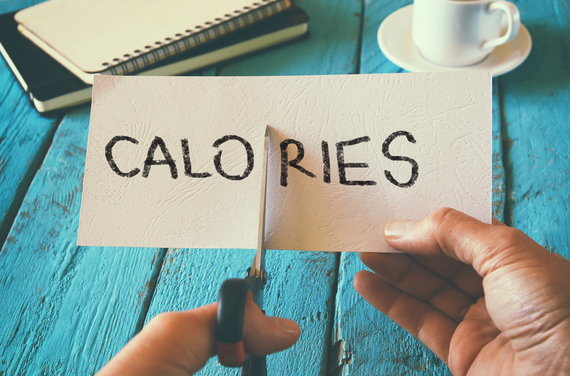What is better, diet or exercise?If you want to lose weight successfully, what is more helpful: eating right or working out more? You've probably asked yourself these questions on numerous occasions. It's a great battle between physical activity and nutrition regarding overall health than weight loss. While some scientists claim diet is more important, others allege otherwise. So, what's better? To find out the answer, keep reading this article.
Exercise and diet in cutting calories
The New York Times published an interesting article wherein it was confirmed that both exercise and diet are crucial for weight loss, but diet has a slight edge. The report states that average person isn't able to keep up with 30 minutes of strenuous activity regularly, meaning at some point they'll start cutting fewer calories than before. Another potential reason that could explain why diet has a slight advantage is that exercise increases one's appetite, and when you burn off calories during the workout, the organism signals you to replace them.
It's not uncommon for metabolism to slow down after a person loses weight. The report mentions that some research found that the resting metabolic rate in all dieters decreases significantly, regardless of whether they exercise or not. These studies suggest that proper diet is enough for successful weight loss, and it helps you burn off more calories than exercise.
The report doesn't specify the best diet option to cut more calories, but that's not the only problem with it. Although beneficial effects of well-balanced diet are undisputed, ruling out exercise is a big mistake. Let's take high fiber diet as an example, it promotes digestion and thereby helps you lose weight, but it's not the only solution there is. After all, healthy diet doesn't mean a lot if a person still follows a sedentary lifestyle.
In fact, the study whose findings were published in the journal Medicine & Science in Sport & Exercise proved the claims that diet helps you lose more calories than exercise is wrong. The study was conducted by David Stensel and a team of scientists at the Loughborough University of the UK and included 22 women and 10 men. The team of researchers monitored their hormonal, psychological, and behavioral responses to eating. While some participants had to exercise, others were assigned to a food restriction program.
Findings showed impressive results: participants achieved the same calorie deficit through food restriction and exercise. Does this mean both exercise and diet are equally beneficial for cutting calories? Not so fast! When participants were put on food restriction, scientists discovered that they had elevated levels of ghrelin, a hunger hormone, and lower levels of peptide YY, a hunger-fighting hormone. Moreover, individuals from food restriction group also ate a third more at a buffet meal than participants from the exercise group.
In fact, people who exercised ate about 660 calories at buffet meals, while their counterparts from food restriction group consumed 944 calories. This surprising finding allowed researchers to conclude that doing more exercise is a better and more useful option if your goal is to cut back the calorie intake.
Besides the fact that exercise is better for cutting calories than diet, this study made another important discovery. It found that exercise doesn't necessarily increase food intake like it was previously believed.
These findings only add to the growing body of evidence that achieving weight loss by a dramatic reduction in calorie intake isn't the right way to go.
Why is exercise more beneficial?
Physical activity, particularly, aerobic exercise makes the organism repress the release of ghrelin. On the other hand, when you're just cutting calories by restrictive dieting you don't experience the hormone-repressing benefits of exercise, and the ending result is -- you feel even hungrier. People rarely acknowledge they're hungry and let it go; these are the moments when food cravings usually "activate" and you're more likely to indulge in high-caloric foods.
It's needless to mention that to lose weight; you have to burn more calories than you consume. Let's say you're cutting calories with diet only, if you still don't burn more calories than you eat, then weight loss isn't bound to happen. This is also the reason why those stories that claim successful weight loss needs healthy diet only are wrong.
Does this mean diet doesn't play any role?
Although scientific evidence emphasizes that regarding cutting calories and weight loss, exercise has a slight disadvantage, it's a mistake to rule out the importance of diet. In fact, both physical activity and healthy nutrition are important factors that make sure you accomplish your goal.
- They lower insulin levels, and extra calories you eat are burned off for energy, instead of being stored for later use
- All sources of Omega 3 are anti-lipogenic meaning they speed up metabolism and help your body burn fat faster
- They lower levels of stress hormone cortisol that makes the organism store calories instead of burning them
- Omega 3 fatty acids improve the liver's ability to burn fat
Nutrition and physical activity are integral parts of a healthy lifestyle and instead of preferring one factor over another, you should combine both of them to reach optimal results. For example, the study published in the journal Obesity found that diet and exercise together are more effective for weight loss than either of these strategies alone.
Conclusion
Exercise vs. diet is still a subject of numerous debates among scientists who continually strive to determine which method is better than the other. A study from the UK confirmed that exercise has a slight advantage and it, in fact, makes people consume fewer calories than food restriction. But, these findings shouldn't inspire you to ditch diet for exercise. You'll accomplish better results if you combine healthy, well-balanced nutrition with an adequate fitness program.

